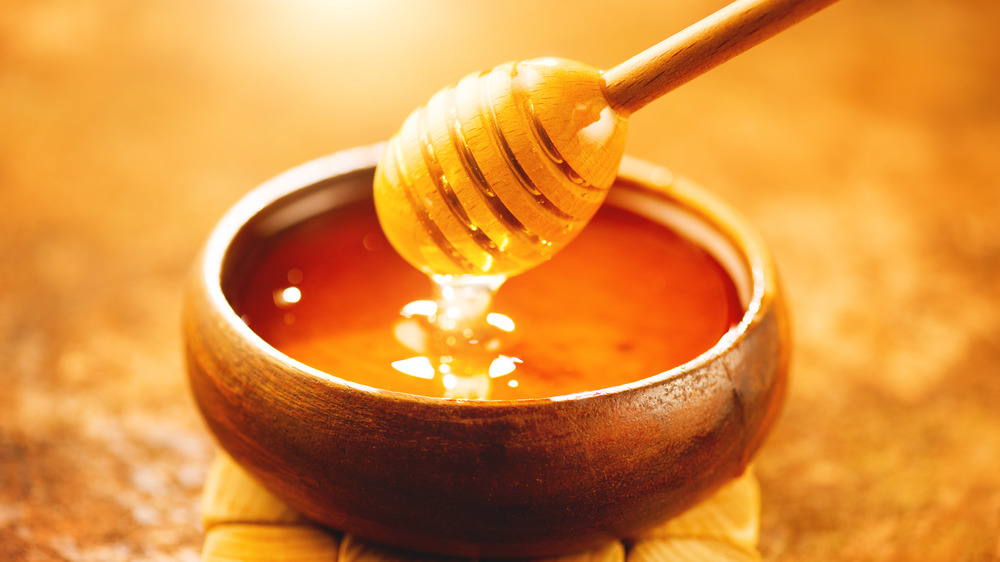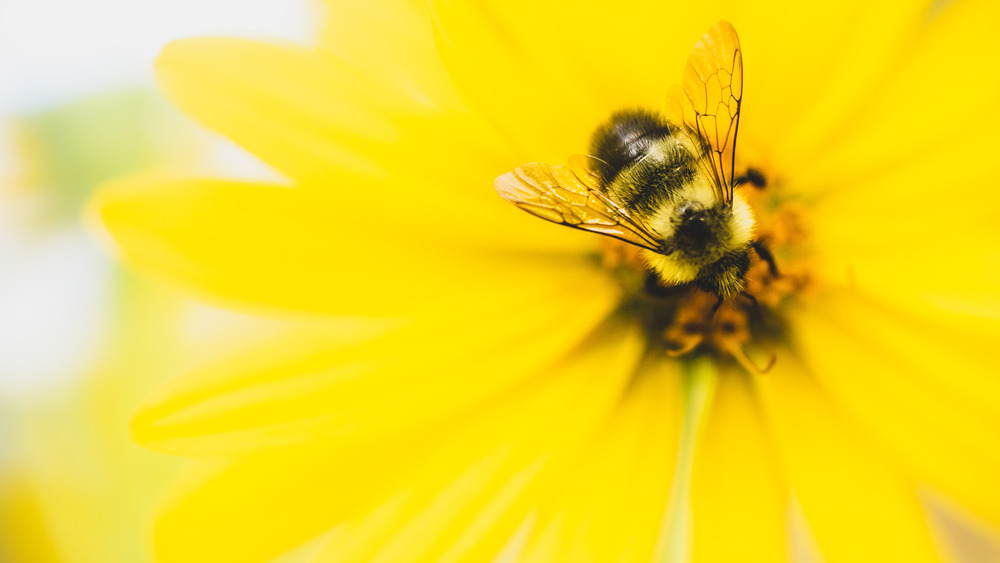Is Honey Vegan?
Vegans avoid foods and beverages made with byproducts from animals, including meat, fish, dairy, eggs, and, yes, honey. Since bees are animals and they create honey, it falls under the umbrella of foods vegans do not eat. Vegans also avoid any products made from animals or tested on animals, including clothing, shoes, purses, haircare, skincare, and makeup. Veganism is an entire lifestyle people choose for various reasons including health, ethics, animals, and the environment (via PETA).
You might be surprised by some other foods vegans don't eat, like chewing gum, food coloring, vegetable soups, gummy bears, margarine, beer, wine, Mentos, jelly beans, Oreos, and more. Not all of these foods and beverages are made with animal products, but many are. To know if a food product is vegan, carefully read the labels.
You might be wondering what vegans do eat. A vegan diet includes fruits, vegetables, grains, beans, nuts, legumes, seeds, peas, bread, pasta, rice, and vegan food alternatives. Vegan honey alternatives are maple syrup, agave nectar, coconut nectar, molasses, brown rice syrup, date syrup or paste, yacon root syrup, barley malt syrup, and apple syrup (via Healthline and PETA).
Why don't vegans eat honey?
Vegans don't eat honey because it's an animal product made by bees, for the benefit of bees. Some vegans also find reason to be concerned with industrial bee farming practices.
Bees get nectar from wildflowers and then go back to the hive and throw it up, making honey. (Yes, you read that right.) According to Your Daily Vegan, worker bees then preserve the honey in the honeycomb to have it to eat while they hibernate in the cold winter months.
Beekeepers who sell honey give the bees an alternative to eat during hibernation, usually sugar syrup, sucrose or high fructose corn syrup, which don't nutritionally stack up to honey. Bees given these food alternatives instead of honey experience malnutrition, which poorly affects their immune system and ability to fight off the ill effects of pesticides, according to a 2014 study. Other practices such as killing a whole colony rather than treating disease, or to start a new colony in the spring (via a 2019 study and a 2013 study), are causes for concern.
For these reasons, many vegans feel that eating honey is exploitative. According to LIVEKINDLY, The Vegan Society has deemed honey non-vegan, stating on their website that "honey is made by bees for bees, and their health can be sacrificed when it is harvested by humans. Importantly, harvesting honey does not correlate with The Vegan Society's definition of veganism, which seeks to exclude not just cruelty, but exploitation."


